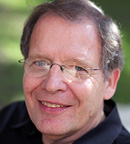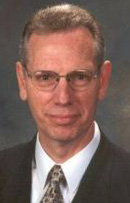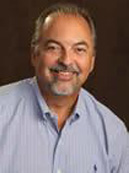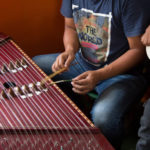When congregations join their hearts and voices any given Sunday, the choice of worship songs both reflects and shapes their theology, church musicians agree.
 “I believe the music of a congregation will—or should—always reflect the theology of that body, but it also serves a didactic function,” said Todd Wilson, pastor of worship and music at First Baptist Church in Abilene.
“I believe the music of a congregation will—or should—always reflect the theology of that body, but it also serves a didactic function,” said Todd Wilson, pastor of worship and music at First Baptist Church in Abilene.
Wilson pointed to the Apostle Paul’s instruction in Colossians 3:16: “Let the word of Christ dwell in you richly as you teach and admonish one another with all wisdom, and as you sing psalms, hymns and spiritual songs with gratitude in your heart to God.”
 Todd WilsonThe teaching function of music places heavy responsibility on worship leaders to examine the songs they select, Wilson noted.
Todd WilsonThe teaching function of music places heavy responsibility on worship leaders to examine the songs they select, Wilson noted.
“It further challenges us to examine the repertoire of the congregation that we serve to see that the people of God are being exposed to the full counsel of God, of which some aspects must be addressed carefully in a multigenerational congregation,” he said.
Terry York, professor of Christian ministry and church music at Baylor University’s Truett Theological Seminary, agrees well-rounded worship demands careful consideration of all biblical truth and the full range of human experience.
 Terry York“I don’t know if there are any biblical concepts that are not singable, but there are some that we don’t like to sing. We don’t like laments. We don’t want to sing slow and sad in a minor key,” York said. “It’s fun to sing praise and testimony of how God is at work in our lives. We also need to sing laments, or the cork will pop somewhere.”
Terry York“I don’t know if there are any biblical concepts that are not singable, but there are some that we don’t like to sing. We don’t like laments. We don’t want to sing slow and sad in a minor key,” York said. “It’s fun to sing praise and testimony of how God is at work in our lives. We also need to sing laments, or the cork will pop somewhere.”
Some worship leaders focus only on celebration because they want guests to see the church as “a happy place” and the people of God as perpetually joyful—a concept foreign to the psalms in the Hebrew Scriptures, he noted.
“Shortcuts to evangelism and church growth have stolen 11 o’clock on Sunday morning,” York said. A spirit of genuine humility and hospitality among worshippers—not a façade of happiness all the time—will draw seekers and resonate with believers, he said.
Sign up for our weekly edition and get all our headlines in your inbox on Thursdays
John Jackson, minister of music more than four decades at First Baptist Church in Farmington, Mo., voiced a similar concern.
 John JacksonCompared to “the incessant debate over what style of music should and should not be sung in the church,” the theology expressed in worship songs has received too little attention, Jackson said.
John JacksonCompared to “the incessant debate over what style of music should and should not be sung in the church,” the theology expressed in worship songs has received too little attention, Jackson said.
“Churches, pastors and church musicians owe it to themselves, their congregations and the lost communities they seek to reach to offer songs that contain sound doctrine and use those songs in contexts that reflect and complement the truth of the gospel.”
Worship songs need to be true to the Bible, theologically appropriate for a particular Christian tradition and true to the personality and background of a specific congregation, said Bob Brooks, dean of the graduate school of ministry and director of the master of arts in worship leadership program at Dallas Baptist University.
 Bob Brooks“Each congregation has its own musical vocabulary. Our Creator has given each of us creative ability, and each congregation has its own unique make-up and way of developing its own musical vocabulary and approach to worship,” he said.
Bob Brooks“Each congregation has its own musical vocabulary. Our Creator has given each of us creative ability, and each congregation has its own unique make-up and way of developing its own musical vocabulary and approach to worship,” he said.
Brooks cited the example of cowboy churches that may use classic hymns or gospel songs presented in a country-western style or young congregations that have grown up with contemporary Christian music.
“We should celebrate the great diversity of the people of God. It doesn’t have to be the same for everyone. God calls you to be the church that you are—not some other church,” he said.
Worship leaders always should examine their motives and ask what the choice of music for a particular worship service contributes to a particular congregation at a particular time, York added.
“I am never in favor of manipulation. It’s always a temptation. If you can’t make them cry in three stanzas or make them shout glory in three stanzas, you’re not much of a musician. It’s a great temptation,” he said. “Leadership and manipulation live next door to each other but with an important fence between them. The fence is the question, ‘Why?’”
Music should not be used manipulatively, “setting the hook” to reel in a convert or coerce a commitment, he insisted. It should not be used to take people to a place emotionally where they respond only to emotions. “I’d rather they be invited to a place than be taken there,” York said.
–With additional reporting by Vicki Brown of Word & Way















We seek to connect God’s story and God’s people around the world. To learn more about God’s story, click here.
Send comments and feedback to Eric Black, our editor. For comments to be published, please specify “letter to the editor.” Maximum length for publication is 300 words.